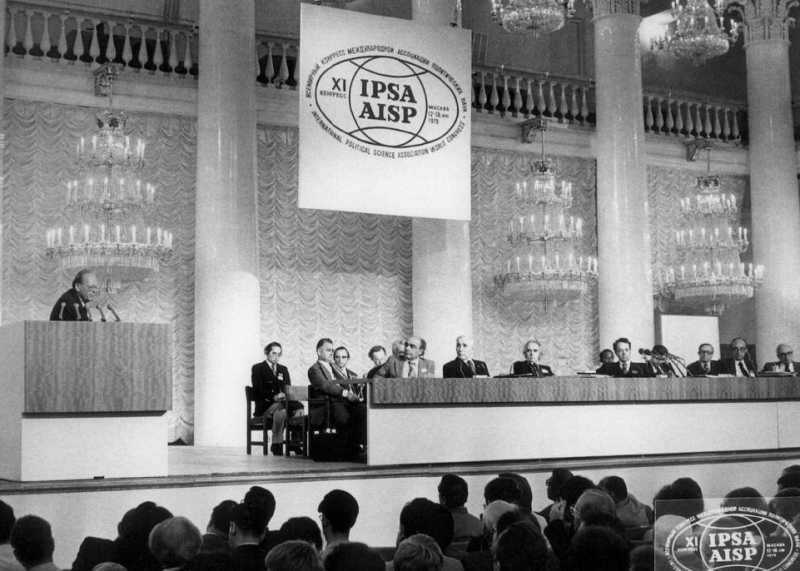
The main and immediate effect of the IPSA’s international expansion beyond the Western world where it first developed was to politicize the process. Accepting one member or another, organizing a World Congress in one area or another involved making decisions that were often based on political more than on scientific considerations. We shall now turn our attention to the tightrope the Association has walked between these two often contradictory principles.
4.1. Expanding the membership across borders
1) In your country, is there a National Association
or simply groups representing specialists in
political science? I would like to make it clear that
the term should be understood rather broadly and,
in principle, should be considered to apply to
professors of Public Law and Government as well.
In the event that such a group exists, would it be
possible for you to send me its address and the
name of the people in charge?
2) Is it possible to obtain a list of the specialists
in political science and public law in your
country? [Translation]
Jean Meynaud
IPSA Executive Secretary, 16 March 1950.
Those were the terms in which Jean Meynaud couched the standard letter that he sent to every corner of the world from March to May 1950. Australia, Denmark, Lebanon, Yugoslavia, Italy, Argentina, Brazil, Chile, Ecuador, Cuba, Peru, Venezuela, Colombia, South Africa, Hungary, Pakistan, Ireland, Japan, Uruguay, Finland, Portugal: few countries escaped this wave of correspondence. If Meynaud did not have the names of any political scientists for a particular country in his address book, he wrote to representatives of other disciplines and even to government ministers. He unwittingly demonstrated how little political scientists of different nationalities knew about each other at the time by writing to a former Finnish Minister of Justice, Tauno Suontausta, even though the Finnish Political Science Association had been in existence since 1935.
Meynaud’s wholesale canvassing bore fruit; by the end of 1955, the Association had no fewer than 23 collective members. The majority were from Western countries, with the notable exceptions of the national associations from India (a founding member), Israel, Mexico, Brazil, Japan, Poland, Yugoslavia, Australia, Cuba, Ceylon, and the Soviet Union. Since 1955 the expansion has continued, albeit at a slower pace, and in 2009 reached the symbolic mark of 50 collective members. However, this quantitative success was not achieved without controversy. For example, in 1952, the issue of German admission provoked an angry outcry from the Israeli Association, which had been a member since 1950. The IPSA too voiced some reservations and refused to admit the German Association without assurances that it would not admit any “personality involved in Nazism.”33 The admission process lasted nearly two years and required the presentation of various supporting documents by the German Association and a visit to Germany by the Executive Secretary of the IPSA. Only then did the International Association admit the Germans as a collective member.
The case of the Soviet Association aroused fiercer tensions even before a formal application was made. In late 1954, Jean Meynaud took it upon himself to invite representatives of the USSR to the following year’s World Congress in Stockholm. The initiative was immediately criticized by the then President, W. A. Robson:
I do not think we ought to invite participants to the Stockholm Congress from the USSR and other countries behind the iron curtain without the agreement of the Executive Committee of the IPSA. To invite representatives of the USSR for the first time raises a question of policy on which very strong opinions may be held both by member associations and by members of the Executive Committee. It is therefore necessary, in my opinion, that our colleagues should be given an opportunity to express their views before any action is taken. Not to consult them may provoke violent reactions and criticism from our colleagues and their associations. Moreover, some political scientists may be unable to attend a Congress if official spokesmen of the USSR are present. 34
The affair not only revealed how permeable political science was to the international tensions of the period but also had an immediate impact on the operations of the IPSA when Jean Meynaud resigned as Executive Secretary after the Stockholm Congress.
The Soviet Association was ultimately admitted as a collective member, although the decision was not entirely of the IPSA’s doing. Russia’s entry into UNESCO made it rather awkward to keep the country out of an international association that had been established under UNESCO’s auspices. The Soviet case was only the first in a series of problems that arose in relation to the special political circumstances of Eastern Europe, as the account by André Philippart, the IPSA’s Secretary General from 1967 to 1976, illustrates (see below).
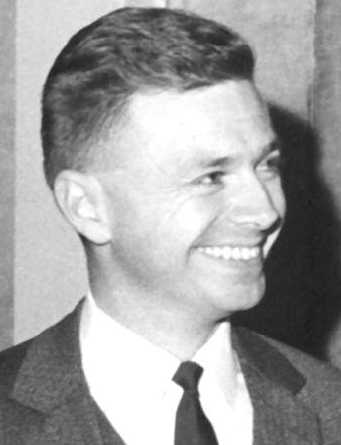 The IPSA and the East
The IPSA and the East
The period 1967–1973 was marked by the establishment of new political science associations in Eastern Europe, usually at the request of colleagues from the countries involved. In the main, they were jurists and professors of law who had ties to the regime but tended to express themselves “differently,”albeit with the usual caution. The USSR, Yugoslavia and Poland were already members and steered the admission process for countries under Soviet control. At Executive Committee meetings tensions ran high between Tchikvadze and Zivs (for the USSR) and, most notably, Karl Friedrich, Sam Finer, Jacques Freymond, Giovanni Sartori (who had replaced Mario Viora), and Alfred Grosser. Czechoslovakia had had a great deal of trouble before gaining admission in 1964, and Yugoslavia (via Pasic) did not inspire strong support. Poland’s Jerzy Wiatr took stands that differed from those of his compatriot Stanislaw Ehrlich. Jean Laponce and Kurt Sontheimer played the role of moderators.
Meeting in Salzburg in September 1968, the Executive Committee decided to hold a Round Table in Prague.The Prague Spring had just been ended by the Soviet military intervention (21 August 1968), and the Executive Committee resolved to immediately send a delegation led by the President, Karl Friedrich, and the Secretary General to gauge the political temperature there. In October 1968,we therefore made our way to a city under occupation.We could not make any of the contacts we had wanted and were trapped in our hotel. Still, the Executive Committee kept to its plans for the Round Table for 18–19 September 1969.
Alexander Dubcek’s “socialism with a human face” of 5 January 1968 was no more. The changes it had advocated—freedom of the press, expression, and movement, economic decentralization, and the establishment of a federal system— were abandoned.Gustav Husak had replaced Dubcek.Under the authority of the USSR, the Warsaw Pact powers of Bulgaria, Poland, Hungary, the GDR, and Albania (but not Romania) had overthrown President Svoboda. Janos Kadar assumed responsibility for “normalization”and used a column of tanks (from the Czechoslovak army) to suppress demonstrations in the center of Prague. The scholars that the IPSA had invited to attend had been dismissed and replaced by toadies of the new leadership. Still, the Round Table was held in Prague in September 1969 in hopes of alleviating the worsening repressive conditions. It did no good. André Philippart went on Czechoslovak television to explain why the IPSA was there, but it appeared as if he were backing the regime. Instead of translating what he said, the presenter delivered a monologue of his own.Led by a furious Sam Finer, the Round Table participants left the city.
Afterwards, the Brezhnev Doctrine made debate about the newly created national associations in Romania, Bulgaria, and Hungary more acrimonious. It was a distressing time, for in addition to the Warsaw Pact intervention, there were the events of May 1968 and the Vietnam War. Until the 1976 Edinburgh Congress, successive Executive Committees had to deal with the tensions these events had engendered between their members.An easing of tensions became apparent only with the Moscow Congress of 1979.The new leaders of the Soviet association were still close to the regime but had gradually acquired autonomy of a sort.There was an evident trend to freedom of expression, and the stage was being set for the Gorbachev era.
Stein Rokkan, Jean Laponce, and Karl Deutsch were very active and persuasive presidents during these changes. The International Political Science Association had played a by no means insignificant role thanks to its numerous contacts with the countries of Eastern Europe. André Philippart, for example, made 14 trips to Poland, Romania, Bulgaria, and Hungary to organize or support Round Tables by IPSA Research Committees.
André Philippart
Secretary General of the IPSA – 1967-1976
Another problematic case, which occurred much later, concerned China. In the mid-1980s the Taiwanese political science association indicated its intention to rejoin the IPSA. Immediately, tensions arose with China, which was already a member, over the name of the Taiwanese organization. The Taiwanese claim to the name “Chinese Political Science Association (Taipei)” was rejected by the association from the People’s Republic in the name of the One China policy. After years of sterile terminological debates and unsatisfactory compromises, in 1989 the IPSA Executive Committee agreed to admit Taiwan under the name “Chinese Political Science Association (Taipei),” but stated explicitly that the decision in no way constituted an infringement of the political principle of One China. Notwithstanding the Executive Committee’s stipulation, the Chinese Political Science Association protested and withdrew from the IPSA two years later. The International Association’s efforts to bring China back have so far been unsuccessful.
Geographic expansion entailed not only such ad hoc problems but also raised structural issues. In fact, as the Association’s base grew, the priorities of the Executive Committee changed. In the early years, the aim was primarily to achieve a critical mass of members. Later, the IPSA sought increasingly to manage expansion on the basis of geographic balance. Inspired largely by UNESCO’s “mania for geographic representation,” 35 this principle has had two consequences. First, it has led the Association to attempt to establish and maintain representation from every area of the world in all its structures and activities. Every continent has to be adequately represented everywhere, from the Council to the Executive Committee and from the Congresses to articles in the IPSR. Second, the geographic-representation principle has had an impact on the selection of cities to host IPSA events, inasmuch as organizing a Round Table, Congress or Symposium in one region or another of the world is seen as sending a message of encouragement or as an acknowledgment that the discipline has made advances there. In the final section of our survey, we shall therefore examine the policy that guides the choice of venue for Congresses.
4.2. Congress Policy
Unfortunately, none of the speakers who took the
floor during the opening and closing sessions of
the Congress saw fit to recall these elementary
truths: that political science is not to be confused
with political activism; that however justified the
cause of friendship between peoples may be, it
should never lead us to sacrifice the search for
truth. [Translation]
Marcel Merle
IPSA Executive Committee member,
Le Monde,
21 August 1979.
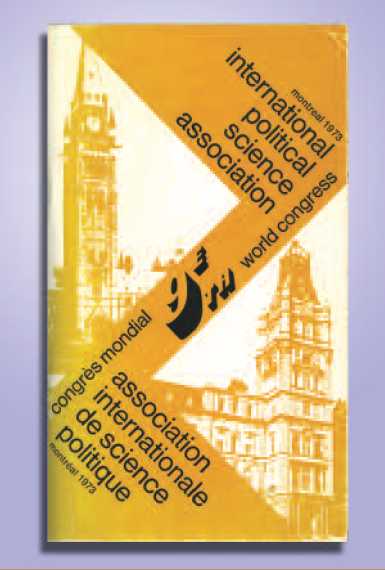 The principle of geographic balance has been a fundamental element of the IPSA’s policy in selecting Congress venues and helps explain why the Association was for so long hesitant to organize one in the United States. American political science loomed so large in the discipline that the Association sought to avoid reflecting US predominance in its own structures. Given the sheer numbers, the fear that “by force of circumstance, the Association would become a purely Anglo-Saxon affair” 36 was well founded. With over 10,000 members, the APSA potentially carried more weight than all the other national associations combined. Consequently, the first eight IPSA Congresses were held in Europe (Zürich 1950, The Hague 1952, Stockholm 1955, Rome 1958, Paris 1961, Geneva 1964, Brussels 1967, Munich 1970). Not until 1973 did the IPSA overcome its fears and hold its first Congress on the other side of the Atlantic. It was only after this first foray that the policy of rotation became more firmly established. After the 1976 Edinburgh Congress, rather bold decisions were thus made to hold Congresses in two non-Western locales: Moscow in 1979 and Rio de Janeiro in 1982. After returning to Europe in 1985 (and making Paris the only city to have hosted more than one World Congress), the IPSA underscored its decentralization by going to Washington (1988), Buenos Aires (1991), Berlin (1994) and Seoul (1997). The Congresses since the year 2000 constitute a consummation of a sort; each of the five cities—Quebec (2000), Durban (2003), Fukuoka (2006), Santiago (2009) and Madrid (2012)—represents a different continent.
The principle of geographic balance has been a fundamental element of the IPSA’s policy in selecting Congress venues and helps explain why the Association was for so long hesitant to organize one in the United States. American political science loomed so large in the discipline that the Association sought to avoid reflecting US predominance in its own structures. Given the sheer numbers, the fear that “by force of circumstance, the Association would become a purely Anglo-Saxon affair” 36 was well founded. With over 10,000 members, the APSA potentially carried more weight than all the other national associations combined. Consequently, the first eight IPSA Congresses were held in Europe (Zürich 1950, The Hague 1952, Stockholm 1955, Rome 1958, Paris 1961, Geneva 1964, Brussels 1967, Munich 1970). Not until 1973 did the IPSA overcome its fears and hold its first Congress on the other side of the Atlantic. It was only after this first foray that the policy of rotation became more firmly established. After the 1976 Edinburgh Congress, rather bold decisions were thus made to hold Congresses in two non-Western locales: Moscow in 1979 and Rio de Janeiro in 1982. After returning to Europe in 1985 (and making Paris the only city to have hosted more than one World Congress), the IPSA underscored its decentralization by going to Washington (1988), Buenos Aires (1991), Berlin (1994) and Seoul (1997). The Congresses since the year 2000 constitute a consummation of a sort; each of the five cities—Quebec (2000), Durban (2003), Fukuoka (2006), Santiago (2009) and Madrid (2012)—represents a different continent.
The principle of geographic equality is so firmly ingrained in the Association’s procedures that every other consideration is secondary. Only the IPSA’s linguistic policy, which is also deeply rooted in its history, has similarly rarely been tinkered with. The Association has had a policy of French-English bilingualism since its inception 37, but has regularly had to face demands for the recognition of other languages as well: for example, at the 1955 Stockholm and 1958 Rome Congresses. Such claims have always been rejected to avoid setting a “dangerous precedent.” 38 Material, operational and financial issues have not been treated in the same principled fashion, however. The decisions to hold Congresses in Moscow, Rio de Janeiro, and Durban were not, in fact viable in these terms and aroused a great deal of opposition. The IPSA stood firm in all three cases, though, and was one of the first international scientific associations to break through the Iron Curtain and open itself up to the Third World and to going to Africa. The IPSA’s African experience even served as a model for the International Sociological Association, which went to Durban three years later.
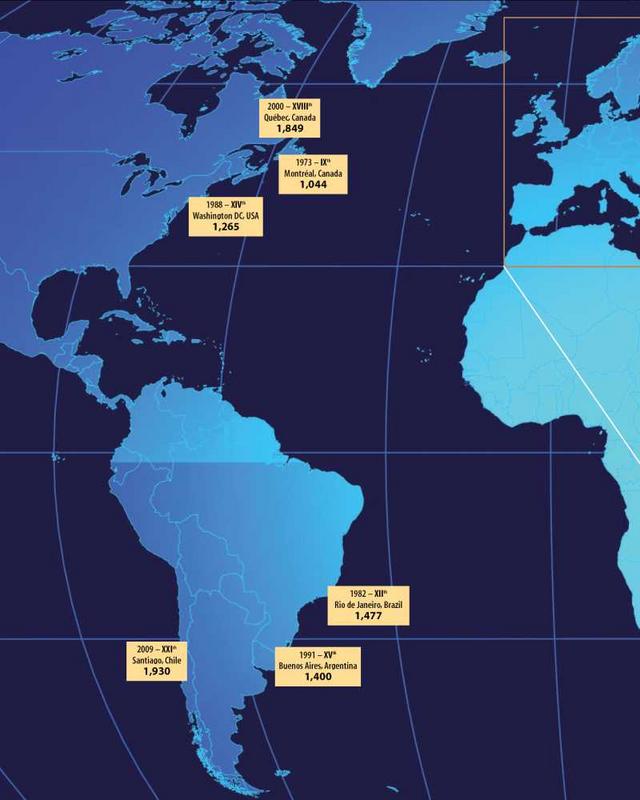
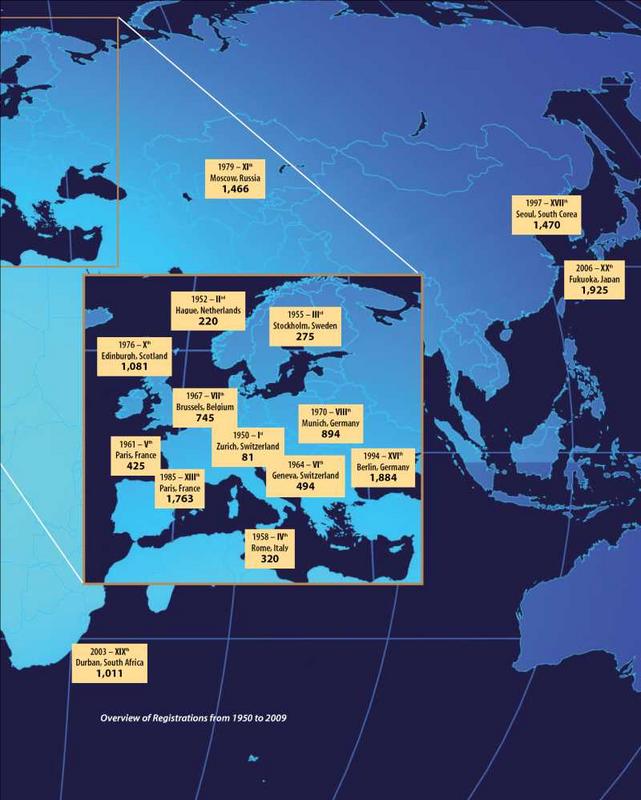
The Russian, Brazilian, and South African examples also prove that political considerations are not decisive in selecting a region to host a Congress. On the contrary, political conflicts are almost an incentive for such events since the Association wants, above all, to show that dialogue between political scientists is not constrained by diversity. To be sure, the controversial aspects of such decisions have not been ignored, but, as the Moscow example shows, they do not determine the choice.
The IPSA made a bold decision in crossing the Iron Curtain. It was one of the first international organizations to hold one of its flagship events on Soviet territory. The fact that the Association’s field of study is politics, a very sensitive subject, raised the level of tension even higher. The sides in the debate very quickly took up their positions. Those who opposed a Congress in Moscow saw it as legitimizing the Soviet regime in a way. The supporters of the Russian venue saw it either as a heuristic necessity that should not be hijacked politically or as a contribution to efforts to convert the USSR to Western values.
The controversy was not limited to the Executive Committee or even to the Association. The matter changed dramatically from a political science issue to a political issue and was discussed in the American, Russian, and French press. The arrest of the dissident academics Yuri Fyodorovitch Orlov and Alexander Ginsburg in 1977 and 1978 was clearly 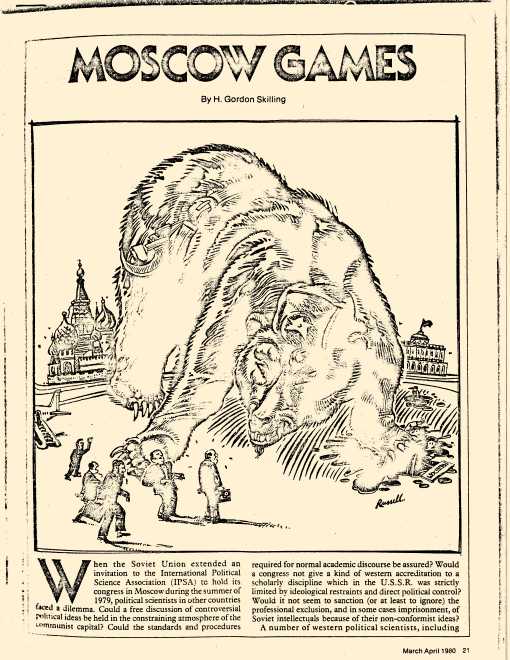 inconsistent with the Helsinki Accords and brought the debate home very starkly. Over the summer of 1978, the IPSA was called upon to justify its decision and provide a number of guarantees. The Executive Committee issued a communiqué to clarify the Association’s position. It contended there was no valid reason to refuse an invitation from a national association that had been a member of the IPSA since 1955. While “fully aware of its global responsibilities and of the international ramifications its judgment might have,” the Executive Committee stated that “no other discipline needs to break through borders, to stimulate recognition and comparative study of its subject as much as political science does,” and that pursuing this objective is even likely, in the end, to help “establish a climate of confidence and mutual respect between different societies, ideologies and political systems.” However, the Committee did set one indispensable condition: every bona fide political scientist had to have free access to the Congress. The “consent to the meeting would be immediately withdrawn if the conditions of free access and freedom of communication, discussion, and speech were not respected.” 39
inconsistent with the Helsinki Accords and brought the debate home very starkly. Over the summer of 1978, the IPSA was called upon to justify its decision and provide a number of guarantees. The Executive Committee issued a communiqué to clarify the Association’s position. It contended there was no valid reason to refuse an invitation from a national association that had been a member of the IPSA since 1955. While “fully aware of its global responsibilities and of the international ramifications its judgment might have,” the Executive Committee stated that “no other discipline needs to break through borders, to stimulate recognition and comparative study of its subject as much as political science does,” and that pursuing this objective is even likely, in the end, to help “establish a climate of confidence and mutual respect between different societies, ideologies and political systems.” However, the Committee did set one indispensable condition: every bona fide political scientist had to have free access to the Congress. The “consent to the meeting would be immediately withdrawn if the conditions of free access and freedom of communication, discussion, and speech were not respected.” 39
Still, as the Congress approached, the atmosphere became poisonous, and a last-minute controversy over the Israeli delegation’s visas made it uncertain whether the Congress would go forward at all. A sort of paranoia emerged, as this anecdote recounted by then Secretary General John Trent illustrates:
Once—I was in Moscow—we were walking down the street, and the American [IPSA] Vice President [who] was next to me [said], “John, they’re following us.” I said, “Who’s following us?” He said, “The KGB.” I said, “Bullshit! No one is interested! They don’t care about a couple of political scientists!” [You know], they always had bugs in our hotel rooms, but they did that for everyone. Finally, I took him by the arm, pulled him into the doorway of a building and told him, “Wait! Wait!” There was nobody there. There was absolutely nobody. I said, “Are you convinced now? Okay?”40
When the Congress opened, the main goal had been achieved; all the collective members of the IPSA were represented by delegations, and not a single political scientist was denied a visa. However, the proceedings of the Congress did give rise to controversy. Problems arose, although supporters and opponents of the Association’s policy obviously did not ascribe the same importance to them. Some people pointed to the lack of participation by many American researchers, the “contamination” of political scientists in attendance by Soviet propaganda, the large number of panels on Lenin’s thought, and the exclusion of the dissident mathematician Aleksandr Lerner from the debates. In contrast, others stressed the attendance at the Congress by representatives of all the collective members of the IPSA, the fact that thousands of papers had been imported to the Soviet Union, or the fact that, on the whole, the Congress was well run, an encouraging point in view of the 1980 Olympic Games which were due to take place in Moscow.
In the final analysis, given the numerous and contradictory interpretations of the record of the Congress, it is difficult to conclude whether it was a “success” or a “failure.” The truth probably falls somewhere in between. One thing is certain, though; the decision to hold the Congress in Moscow was a bold move that ran counter to the political climate of the times. Whatever Moscow’s shortcomings, a meeting of East and West did take place. Three years later there was a meeting with the Third World in Rio de Janeiro, and some years after that, in 2003, a meeting of North and South in Durban. In politically—not to mention financially—unfavorable circumstances, the IPSA asserted itself and stood firm on its original objectives: despite physical and intellectual barriers, to do everything possible to create an international community of specialists in political science.
Notes
- Letter from Jean Meynaud to Harold Zink, 4 February 1951. Translation.
- Letter from William A. Robson to Jean Meynaud, 24 December 1954.
- Letter from Jean Meynaud to William A. Robson, 20 March 1952. Translation.
- Letter from John Goormaghtigh to Maurice Duverger, 19 August 1958. Translation.
- The language policy of the Abstracts illustrates this duality: the abstracts for all articles originally published in English are in English, while the abstracts for articles in a language other than English may be in English or French. The IPSA’s Constitution is also in both languages, although only the French version is legally binding since the IPSA’s official headquarters are in Paris. In the IPSA’s work and debates, English now predominates, as it does in all disciplines.
- Letter from William A. Robson to Jean Meynaud, 5 March 1955. Translation.
- Declaration of the IPSA Executive Committee concerning the organization of the 1979 World Congress in Moscow. Translation.
- Personal interview with John Trent, 13 November 2008. Translation.











